Whittling down the list of books I read each year to a select few favorites is always an enjoyably difficult exercise. This year I decided to employ two criteria for my list of favorite books from 2015:
- Does this book have unusual benefit to ordinary pastors?
- Is this a book worth rereading every year?
Those two simple questions helped me pare down all the titles I’ve read to the following books, each of unique value to the ministry of ordinary pastors. Then I have three more titles worth your interest at the end.
Favorite Books for Ordinary Pastors Published in 2015
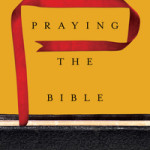 #8—Praying the Bible by Don Whitney. Short, concise, and practical, I could see Whitney’s latest book offering wisdom many church members—and church leaders—are looking for. In Praying the Bible Whitney says, “If . . . mind-wandering boredom describes your experience in prayer, I would argue that if you are indwelled by the Holy Spirit—if you are born again—then the problem is not you; it is your method.” I think he’s right, especially when you understand the method he has in mind. The method is praying through Scripture, particularly the Psalms. He’s spot on to say that such a method of prayer gives structure, purpose, and longevity. This one could transform your prayer life.
#8—Praying the Bible by Don Whitney. Short, concise, and practical, I could see Whitney’s latest book offering wisdom many church members—and church leaders—are looking for. In Praying the Bible Whitney says, “If . . . mind-wandering boredom describes your experience in prayer, I would argue that if you are indwelled by the Holy Spirit—if you are born again—then the problem is not you; it is your method.” I think he’s right, especially when you understand the method he has in mind. The method is praying through Scripture, particularly the Psalms. He’s spot on to say that such a method of prayer gives structure, purpose, and longevity. This one could transform your prayer life.
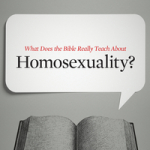 #7—What Does the Bible Really Teach about Homosexuality? by Kevin DeYoung. If ever there was a book uniquely suited for our time it’s DeYoung’s latest. What Does the Bible . . . ? is after an admittedly small slice of the categorical pie, for DeYoung writes, “This is a Christian book, with a narrow focus, defending a traditional view of marriage” (15). The work’s utility lies in its simplicity: part one deals with the five most debated passage on homosexuality and part two deals with the seven most common objections to the traditional view. As we should expect by now, DeYoung is winsomely logical, ruthlessly biblical, and pastorally helpful. Every pastor should have multiple copies on hand to distribute to church members.
#7—What Does the Bible Really Teach about Homosexuality? by Kevin DeYoung. If ever there was a book uniquely suited for our time it’s DeYoung’s latest. What Does the Bible . . . ? is after an admittedly small slice of the categorical pie, for DeYoung writes, “This is a Christian book, with a narrow focus, defending a traditional view of marriage” (15). The work’s utility lies in its simplicity: part one deals with the five most debated passage on homosexuality and part two deals with the seven most common objections to the traditional view. As we should expect by now, DeYoung is winsomely logical, ruthlessly biblical, and pastorally helpful. Every pastor should have multiple copies on hand to distribute to church members.
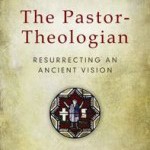 #6—The Pastor Theologian by Gerald Hiestand and Todd Wilson. The Pastor Theologian well surpassed my already high expectations as the authors promote a compelling vision for recovering the long hallowed, but now forgotten, role of the pastor-theologian. Full of piercing historical and sociological analysis, rich reflection on God’s word, and surprisingly helpful tips, this is a book every pastor should read. Not all of us will become Ecclesial Theologians (the true burden of Wilson and Hiestand’s model), yet we all need fresh encouragement to zealously pursuing a learned ministry.
#6—The Pastor Theologian by Gerald Hiestand and Todd Wilson. The Pastor Theologian well surpassed my already high expectations as the authors promote a compelling vision for recovering the long hallowed, but now forgotten, role of the pastor-theologian. Full of piercing historical and sociological analysis, rich reflection on God’s word, and surprisingly helpful tips, this is a book every pastor should read. Not all of us will become Ecclesial Theologians (the true burden of Wilson and Hiestand’s model), yet we all need fresh encouragement to zealously pursuing a learned ministry.
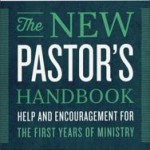 #5—The New Pastor’s Handbook by Jason Helopoulos. Believe the hype, Helopoulos’ book is indeed a “must read” for young pastors (seasoned pastors will surely benefit as well). As was the case in his first book, the instruction here is full of grace and truth. The New Pastor’s Handbook consists of forty-eight short chapters broken into five parts: The Beginning, Starting Out Strong, Encouragements, Pitfalls of Young Pastors, and Joys of Ministry. If any part is required reading it is the section on pastoral pitfalls; the one-two punch of “Taking Yourself Too Seriously” and “Not Taking Yourself Seriously Enough” hits home hard. Joe Thorn overstates his case by saying TNPH “will prove to be as helpful as The Christian Ministry by Charles Bridges.” But he doesn’t overstate the case by much, this book is that good.
#5—The New Pastor’s Handbook by Jason Helopoulos. Believe the hype, Helopoulos’ book is indeed a “must read” for young pastors (seasoned pastors will surely benefit as well). As was the case in his first book, the instruction here is full of grace and truth. The New Pastor’s Handbook consists of forty-eight short chapters broken into five parts: The Beginning, Starting Out Strong, Encouragements, Pitfalls of Young Pastors, and Joys of Ministry. If any part is required reading it is the section on pastoral pitfalls; the one-two punch of “Taking Yourself Too Seriously” and “Not Taking Yourself Seriously Enough” hits home hard. Joe Thorn overstates his case by saying TNPH “will prove to be as helpful as The Christian Ministry by Charles Bridges.” But he doesn’t overstate the case by much, this book is that good.
#4—How to Walk Into Church by Tony Payne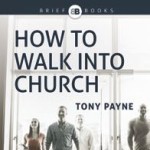 . The fact that How to Walk Into the Church is more a booklet than a book and yet still manages to rank so high on my list tells you how good I found it to be. Payne’s says we should walk into church praying about who we will sit next to. The book goes on to offer beautiful, warm, and simple counsel on the joyful necessity of gathering weekly with the church. One great thing you might do next year is get a case of this book and hand out a copy to ever family in your church. I believe How to Walk Into Church contains life-changing instruction for many ordinary Christians . . . maybe even ordinary pastors.
. The fact that How to Walk Into the Church is more a booklet than a book and yet still manages to rank so high on my list tells you how good I found it to be. Payne’s says we should walk into church praying about who we will sit next to. The book goes on to offer beautiful, warm, and simple counsel on the joyful necessity of gathering weekly with the church. One great thing you might do next year is get a case of this book and hand out a copy to ever family in your church. I believe How to Walk Into Church contains life-changing instruction for many ordinary Christians . . . maybe even ordinary pastors.
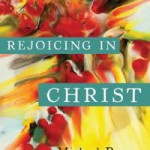 #3—Rejoicing in Christ by Michael Reeves. If there is a contemporary author I love more than Mike Reeves, I’m hard pressed to think who it could be. He’s written my favorite introduction to the Reformation, my favorite introduction to the Trinity, and with Rejoicing in Christ he’s written my favorite populary-level intro to Christology. I’m not sure, however, if this book appropriately falls into the category of “Christology.” Whenever I think of Christology, I think of textbook-ish works on the hypostatic union, eternal generation, and the like. Those volumes are vital indeed; we also need books that simply show us how to stare at Jesus—and do so with joy and hope! Rejoicing in Christ models exultational Christology at its finest.
#3—Rejoicing in Christ by Michael Reeves. If there is a contemporary author I love more than Mike Reeves, I’m hard pressed to think who it could be. He’s written my favorite introduction to the Reformation, my favorite introduction to the Trinity, and with Rejoicing in Christ he’s written my favorite populary-level intro to Christology. I’m not sure, however, if this book appropriately falls into the category of “Christology.” Whenever I think of Christology, I think of textbook-ish works on the hypostatic union, eternal generation, and the like. Those volumes are vital indeed; we also need books that simply show us how to stare at Jesus—and do so with joy and hope! Rejoicing in Christ models exultational Christology at its finest.
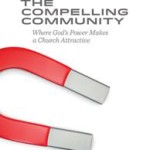 #2—The Compelling Community by Mark Dever and Jamie Dunlop. Dever’s book The Deliberate Church is the resource, outside of Scripture, we value most when training future officers at IDC. It offers an astonishing amount of biblical truth and practical wisdom on matters of pastoral ministry, church polity, corporate worship, and even gets down to things like hiring church staff and running elders’ meetings. Whereas The Deliberate Church aims to set a foundation for a healthy church, The Compelling Community is something like a sequel that tries to let us know—as difficult as it can be to capture in print—what a healthy church feels like. And what a fantastic sequel this is! The Compelling Community offers a vision for healthy church life from which any pastor or church leader can profit. I found the discussion of a church being a place of either “Gospel Plus Community” or “Gospel Revealing Community” worth its weight in gold. I’ll cast aside all other superlatives that come to my mind and simply say, “Get this book!”
#2—The Compelling Community by Mark Dever and Jamie Dunlop. Dever’s book The Deliberate Church is the resource, outside of Scripture, we value most when training future officers at IDC. It offers an astonishing amount of biblical truth and practical wisdom on matters of pastoral ministry, church polity, corporate worship, and even gets down to things like hiring church staff and running elders’ meetings. Whereas The Deliberate Church aims to set a foundation for a healthy church, The Compelling Community is something like a sequel that tries to let us know—as difficult as it can be to capture in print—what a healthy church feels like. And what a fantastic sequel this is! The Compelling Community offers a vision for healthy church life from which any pastor or church leader can profit. I found the discussion of a church being a place of either “Gospel Plus Community” or “Gospel Revealing Community” worth its weight in gold. I’ll cast aside all other superlatives that come to my mind and simply say, “Get this book!”
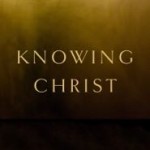 #1—Knowing Christ by Mark Jones. If Helopoulos’s book is a modern version of Bridges’ The Christian Ministry then Mark Jones’ latest is a modern-day The Glory of Christ by John Owen. Knowing Christ is devotional Christology par excellence. Those familiar with Jones will know he is a faithful guide on the Christological paths; he employs the full range biblical theology, systematic theology, and historical theology (especially the Puritans) to make the heart happy in Christ. This is not a book to read quickly; I’d recommend reading one chapter during each day’s daily devotions. I was regularly so moved at the glories of Christ that I had to put the book down to contemplate, pray, and worship. May this book receive the widest audience possible.
#1—Knowing Christ by Mark Jones. If Helopoulos’s book is a modern version of Bridges’ The Christian Ministry then Mark Jones’ latest is a modern-day The Glory of Christ by John Owen. Knowing Christ is devotional Christology par excellence. Those familiar with Jones will know he is a faithful guide on the Christological paths; he employs the full range biblical theology, systematic theology, and historical theology (especially the Puritans) to make the heart happy in Christ. This is not a book to read quickly; I’d recommend reading one chapter during each day’s daily devotions. I was regularly so moved at the glories of Christ that I had to put the book down to contemplate, pray, and worship. May this book receive the widest audience possible.
Favorite Book for Ordinary Pastors Not Published in 2015
Words to Winners of Souls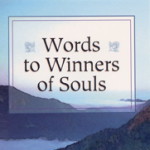 by Horatius Bonar. How I’ve made it over a decade in ministry without reading Bonar’s classic is a mystery to me. The influence of the tiny island of Scotland on the Christian history is stunning. And most of it stems from the view of ministry that has permeated its pastors for centuries. In Words to Winners of Souls Bonar casts a vision for gospel ministry that is simultaneously comforting and convicting. Perhaps the greatest section of the book isn’t even written by Bonar. In 1651, a collection of pastors in Scotland came together a drew up “an humble acknowledgment of the sins of the ministry.” They sensed God’s judgment upon the country and viewed themselves as no small part of the problem. Horatius Bonar called the subsequent ministerial confession “one of the fullest, most faithful and most impartial confessions of ministerial sin ever made.” Read this and don’t be surprised if you weep for greater faithfulness in stewarding the gospel.
by Horatius Bonar. How I’ve made it over a decade in ministry without reading Bonar’s classic is a mystery to me. The influence of the tiny island of Scotland on the Christian history is stunning. And most of it stems from the view of ministry that has permeated its pastors for centuries. In Words to Winners of Souls Bonar casts a vision for gospel ministry that is simultaneously comforting and convicting. Perhaps the greatest section of the book isn’t even written by Bonar. In 1651, a collection of pastors in Scotland came together a drew up “an humble acknowledgment of the sins of the ministry.” They sensed God’s judgment upon the country and viewed themselves as no small part of the problem. Horatius Bonar called the subsequent ministerial confession “one of the fullest, most faithful and most impartial confessions of ministerial sin ever made.” Read this and don’t be surprised if you weep for greater faithfulness in stewarding the gospel.
Favorite Non-Fiction Book
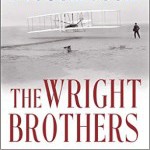 The Wright Brothers by David McCullough. There isn’t anyone from whom I’d rather learn about American history than David McCullough. The two-time Pulitzer winner writes with such a warmth and familiarity of understanding I feel as though I’m listening to my grandfather tells stories of days gone by. His latest work focuses on how Wilbur and Orville Wright created their “flying machine.” This story of the boys from Dayton, Ohio is quintessentially “American”—two men rising from obscurity to change the world through undaunted industry and ingenuity. The Wright Brothers is a story we all should know. And McCullough’s reverent and beautiful prose is the perfect guide.
The Wright Brothers by David McCullough. There isn’t anyone from whom I’d rather learn about American history than David McCullough. The two-time Pulitzer winner writes with such a warmth and familiarity of understanding I feel as though I’m listening to my grandfather tells stories of days gone by. His latest work focuses on how Wilbur and Orville Wright created their “flying machine.” This story of the boys from Dayton, Ohio is quintessentially “American”—two men rising from obscurity to change the world through undaunted industry and ingenuity. The Wright Brothers is a story we all should know. And McCullough’s reverent and beautiful prose is the perfect guide.
Favorite Fiction Book
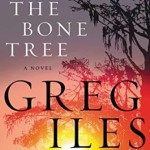 The Bone Tree by Greg Iles. I loved Iles’ Natchez Burning so much that I named it my favorite fiction book of 2014. Natchez was the first book in a trilogy and ever since reading it I’ve tried to temper my expectations for its sequel, The Bone Tree. I am delighted to say there was no need for such tempering; The Bone Tree is excellent! Iles picks up right where the narrative left off and for 800 pages, with unrelenting force, he never lets the reader go. The pages fly as Penn Cage tries to save his father, uncover the truth about Kennedy’s assassination, and take justice into his hands when he loses a loved one. I was shocked to see just how many loose ends Iles tied up from Natchez while simultaneously opening up new ones that will make any reader ravenous to read the trilogy’s final entry.
The Bone Tree by Greg Iles. I loved Iles’ Natchez Burning so much that I named it my favorite fiction book of 2014. Natchez was the first book in a trilogy and ever since reading it I’ve tried to temper my expectations for its sequel, The Bone Tree. I am delighted to say there was no need for such tempering; The Bone Tree is excellent! Iles picks up right where the narrative left off and for 800 pages, with unrelenting force, he never lets the reader go. The pages fly as Penn Cage tries to save his father, uncover the truth about Kennedy’s assassination, and take justice into his hands when he loses a loved one. I was shocked to see just how many loose ends Iles tied up from Natchez while simultaneously opening up new ones that will make any reader ravenous to read the trilogy’s final entry.
Click here to see my Favorite Books of 2014 and Favorite Books of 2013.
